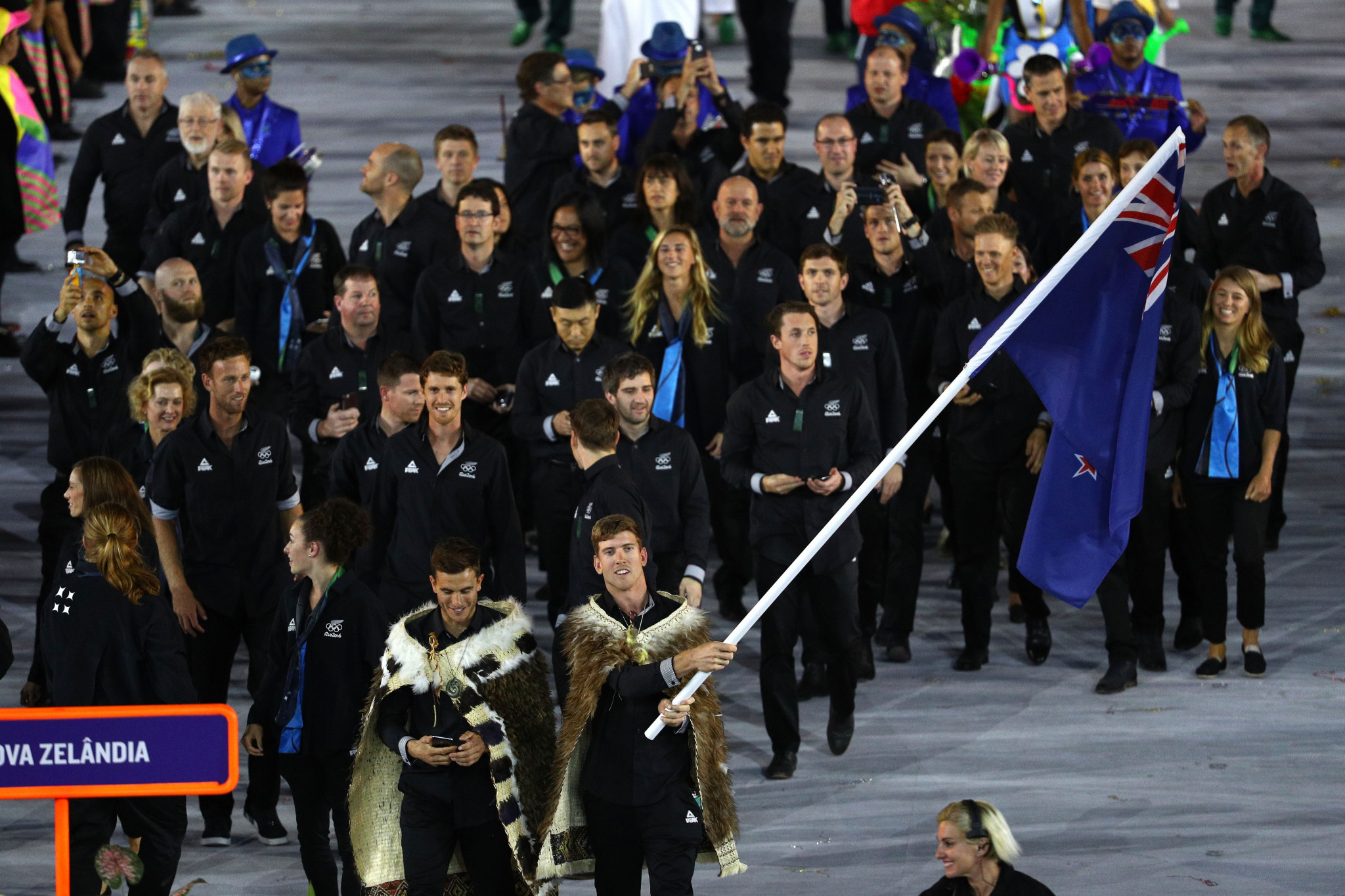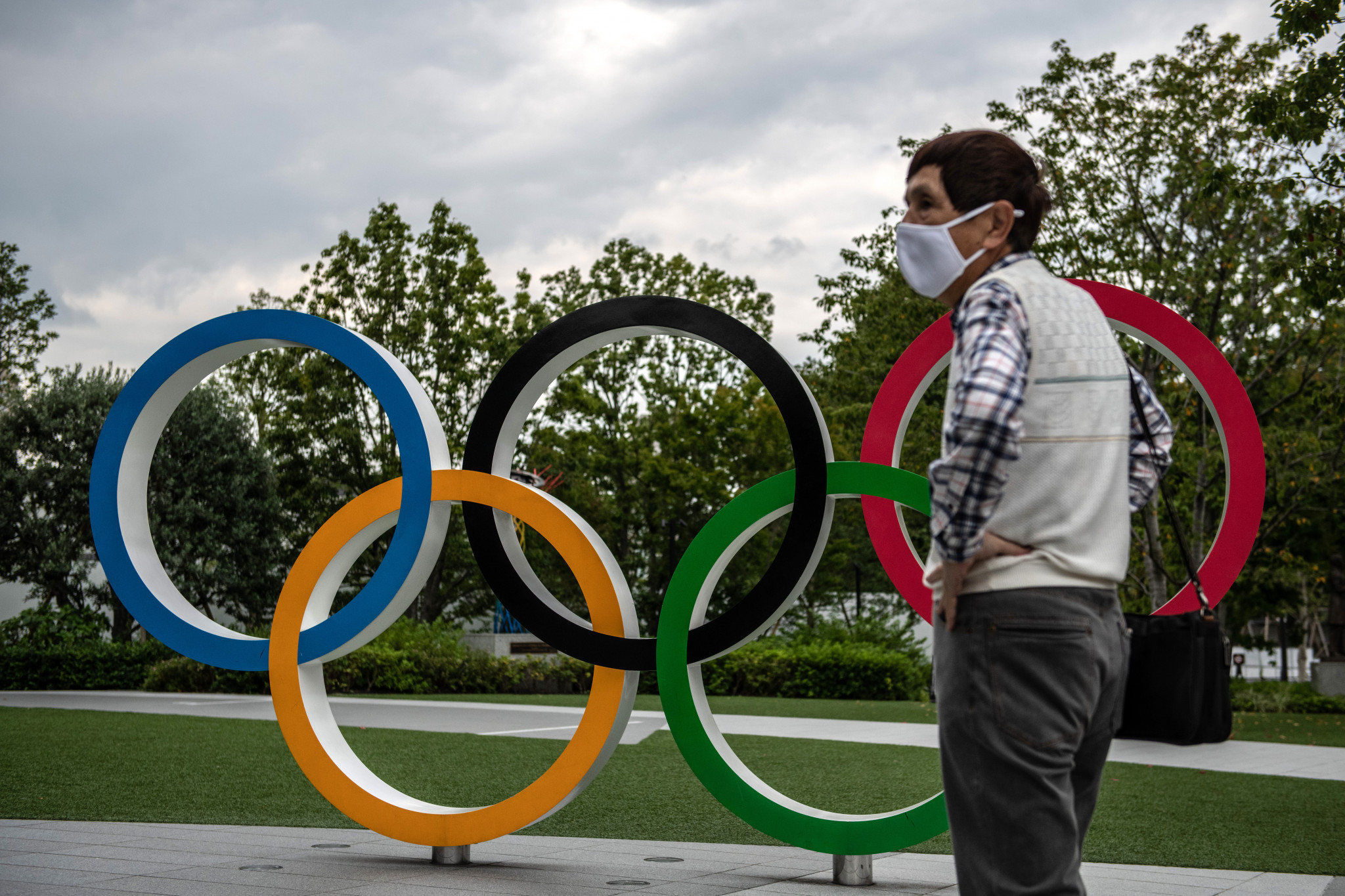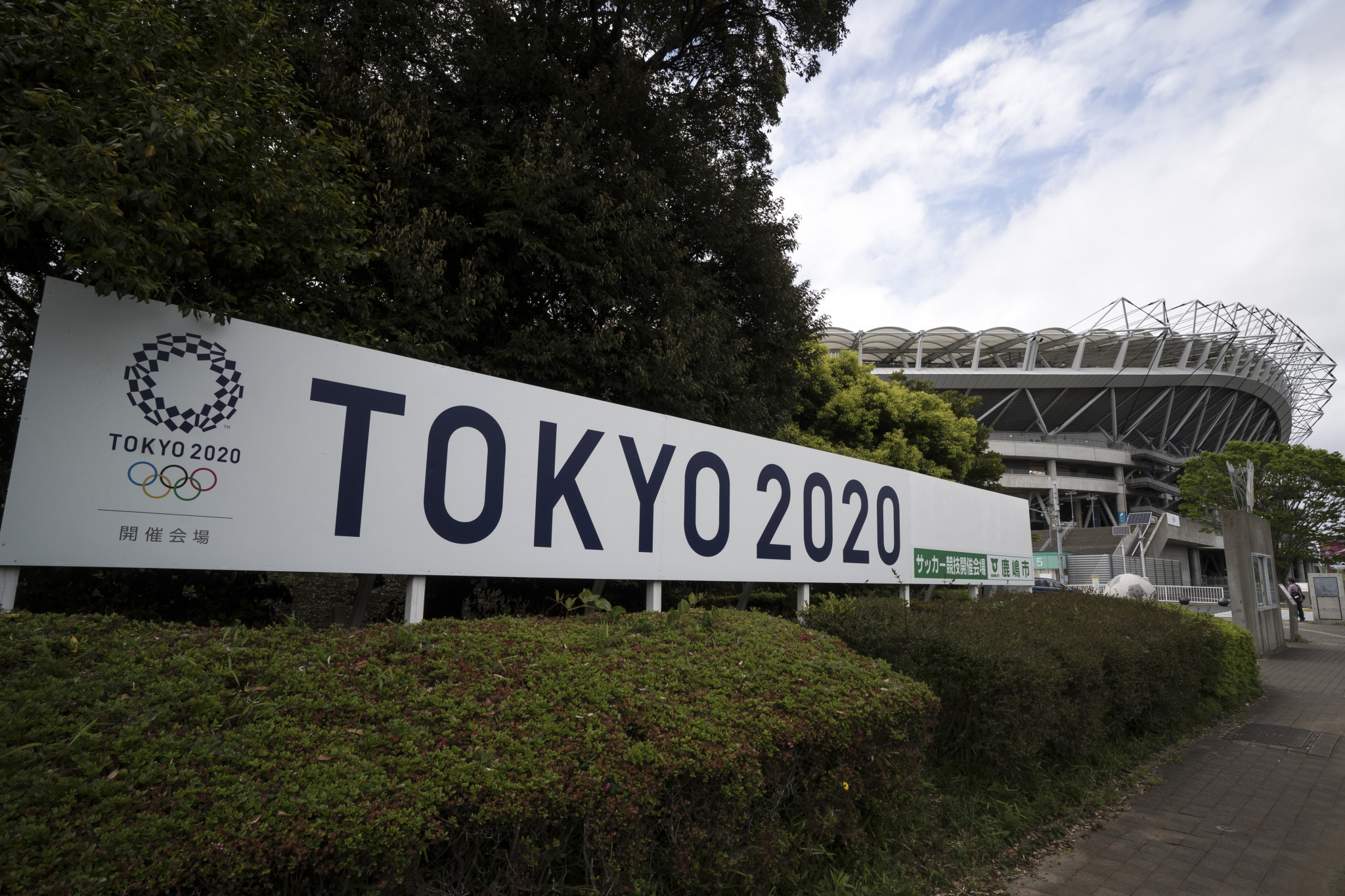The Olympics and Euros will likely take place in pared back form, but the overall landscape is looking a lot more like it was in 2020 than we were expecting just a month ago
New Zealand "on track" to send team of more than 200 athletes to Tokyo 2020
New Zealand Olympic Committee (NZOC) chief executive Kereyn Smith says the country is "on track" to send a team of more than 200 athletes to Tokyo 2020, which would be its biggest ever contingent at an Olympic Games.
The Silver Ferns sent 199 athletes to Rio 2016 and 29 have so far been officially confirmed as on the plane to Tokyo, provided the rearranged Games goes ahead as scheduled from July 23 to August 8 2021.
"At the moment, around 187 quota spots have been either won by individuals or New Zealand teams,” Smith said, as reported by Stuff.
"That still stands at the moment and there is still the possibility for some other athletes to qualify, provided their events take place as scheduled.
"We anticipate that might be, say, 20 to 30 maximum so we would be anticipating an Olympic team of around 200 to 220.
"It’s just uncertain how qualification events that are scheduled, whether they are able to take place in the manner that’s planned.
"What we know is the quotas that have been earned by New Zealand or by specific athletes are remaining.
"So those people can be comforted by the fact they’ve got a spot.
"It’s just the balance of other athletes at the moment we’re working through."
Smith said she was confident of Tokyo 2020 going ahead on its scheduled dates in 2021 adding: "We are confident things will go ahead.
"It’s not ‘if there’s an Olympic Games’, it’s ‘what will they look like?’ That’s where we’re at. So we’re really optimistic about that."
In total, the New Zealand team for Tokyo 2020 is expected to be around 450 including support staff.
Speaking about the planning that was currently going on she added: "We know it’s unlikely that we’ll have to quarantine when we go into Japan, so hopefully we can go into a facility that we’ll be able to manage physical activity and health, but continue training.
"That will be important anyway, because the heat factor is quite significant.
"For us coming from New Zealand, where we’ve been very fortunate to pretty much continue on our life and our training, we’re quickly going to have to adapt and come to understand what that competition environment will look like.
"There’s a lot of things we have to think through around physical distancing, Personal Protection Equipment, all of the measures that are being talked about in general will be part of sport as we know it for the foreseeable future.
"We’ve just got to roll with it."
At Rio 2016, New Zealand won 18 medals - a tally that consisted of four golds, nine silvers and five bronzes.
Two of the country's golds came in rowing courtesy of Hamish Bond and Eric Murray in the men's coxless pair and Mahe Drysdale in the men's single sculls.
The remaining two gold medallists were canoeist Lisa Carrington in the women's K1 200 metres and Peter Burling and Blair Tuke in the men's 49er sailing.
Break dancing gets Olympic status to debut at Paris Games in 2024
GENEVA -- Breakdancing became an official Olympic sport on Monday.
The International Olympic Committee's pursuit of urban events to lure a younger audience saw street dance battles officially added to the medal events program at the 2024 Paris Games.
Also confirmed for Paris by the IOC executive board were skateboarding, sport climbing, and surfing.
Those three sports will make their Olympic debuts at the Tokyo Games which were postponed because of the coronavirus pandemic by one year to open on July 23, 2021.
Alongside the additions, the IOC made subtractions: The slate of 329 medal events in Paris is 10 fewer than in Tokyo, including four lost from weightlifting, and the athlete quota in 2024 of 10,500 is around 600 less than next year.
Two sports with troubled governing bodies -- boxing and weightlifting -- saw the biggest cuts to the number of athletes they can have in Paris.
Weightlifting should have 120 athletes in Paris, which is less than half of its total at the 2016 Rio de Janeiro Games. The sport could be dropped entirely due to its historic doping problems and IOC concerns over the pace and depth of reform at the International Weightlifting Federation.
The IOC stressed its future priorities for Paris, and beyond to the 2028 Los Angeles Games, by claiming it will hit a long-term target of equal participation by men and women athletes, and more urbanized events.
With Paris organizers needing time to prepare their project, the IOC kept to its pre-pandemic schedule to confirm the 2024 sports lineup this month even before some are tested in Tokyo.
Breakdancing will be called breaking at the Olympics, as it was in the 1970s by hip-hop pioneers in the United States.
It was proposed by Paris organizers almost two years ago after positive trials at the 2018 Youth Olympics in Buenos Aires. Breaking passed further stages of approval in 2019 from separate decisions by the IOC board and full membership.
In Paris, breaking has been given a prestige downtown venue, joining sport climbing and 3-on-3 basketball at Place de le Concorde.
Surfing will be held more than 15,000 kilometers (9,000 miles) away in the Pacific Ocean off the beaches of Tahiti, as the IOC already agreed in March.
Among the 28 established Summer Games sports, a total of 41 additional events were proposed to Monday's meeting.
All increases were rejected, including ocean rowing and parkour, and changes were allowed only at the expense of existing events being dropped. Two extreme canoe slalom events will replace canoe sprint events, and the men's 50-kilometer race walk will be replaced by a mixed gender team event.
The IOC said "limiting the overall number of events is a key element in curbing the growth of the Olympic program as well as additional costs."
In other IOC business, Bach confirmed the more than 11,000 competitors at the Tokyo Olympics should not stay in the official athlete village for the entire games, to help limit the risk of COVID-19 infections.
Teams will be advised of a policy that athletes should arrive at their accommodation no more than five days before the start of their competition and have left two days after it ends.
Boxing is on the Tokyo program despite its governing body, known as AIBA, being derecognized by the IOC last year.
The IOC was skeptical last year about an offer to clear AIBA's $16 million debts, if the sport's Olympic status was retained, by Russian boxing official Umar Kremlev who is now a candidate.
The AIBA election is scheduled as a Court of Arbitration for Sport panel of judges is preparing a verdict in a landmark case in the Russian doping saga that could see widespread punishments imposed on the nation's sports.
Asked if Russian election campaigns were appropriate in Olympic circles at this time, Bach said: "It is up to everybody to make his or her own judgment about any such candidatures."
Face masks and social distancing to be in place during Tokyo 2020
Participants at the Tokyo 2020 Olympic and Paralympic Games will be asked to wear face masks at all times and practice social distancing to prevent the spread of COVID-19.
Athletes and staff will be requested to wear face masks at all times, except during competition and meals, as reported by Kyodo News.
This is a part of plan to avoid the "3Cs" - closed spaces, crowded places and close-contact settings.
Indoor venues will be ventilated every 30 minutes, while people in the Athletes' Village will only be able to stay in the cafeteria for 30 minutes for breakfast and one hour for lunch and dinner.
They will receive the menus on their phones to avoid congestion.
Planned coronavirus countermeasures were presented by Tokyo 2020 to the International Olympic Committee (IOC) and International Paralympic Committee at a joint project review earlier this month.
Following the meeting, IOC Coordination Commission chairman John Coates said competitors would be encouraged to limit their stay at the Athletes' Village as much as possible.
Athletes are also likely to be told to remain in the Village during their stay in the Japanese capital and will be encouraged not to go out sightseeing.
Countermeasures were among the main items discussed during the project review, but Tokyo 2020 chief executive Toshirō Mutō suggested no conclusions or decisions had yet been reached.
The coronavirus countermeasures taskforce, formed of officials from the Japanese Government, Tokyo Metropolitan Government and Tokyo 2020, is still assessing possible scenarios and measures that could allow the Games to run as scheduled in 2021.
A progress report is expected to be released on December 2.
Tokyo 2020 was postponed in March as a result of the COVID-19 pandemic, with the Olympics now scheduled for July 23 to August 8 and the Paralympics for August 24 to September 5.
Organisers have received a boost from the development of three potential coronavirus vaccines.
A vaccine being developed by American pharmaceutical giant Pfizer and BioNTech has been found to be 90 per cent effective in preventing people from getting coronavirus after global trials, while another American company, Moderna, revealed a COVID-19 vaccine it is developing is nearly 95 per cent effective.
Last week, a coronavirus vaccine developed by the University of Oxford was found to be 70 per cent effective, although researchers have claimed the figure may be as high as 90 per cent by tweaking the dose.
During his recent visit to Japan, IOC President Thomas Bach suggested the news of effective coronavirus vaccines made him "very confident that we can have spectators in the Olympics stadium next year and that spectators will enjoy a safe environment".
Bach also revealed athletes would be encouraged to have a vaccine before the Games, but it would not be an entry requirement.
Participants face COVID-19 testing every four to five days at Tokyo 2020
Athletes could be tested for coronavirus every four to five days during their time at the Tokyo 2020 Olympics and Paralympics, as part of countermeasures.
Citing sources with "knowledge of the matter", Japanese news agency Kyodo News understands the country's Government is poised to reveal the testing policy.
It is expected to be announced after the coronavirus countermeasures taskforce, formed of officials from the Japanese Government, Tokyo Metropolitan Government and Tokyo 2020, meet at the Prime Minister's office today.
A revised itinerary for events up to and including the Games and immigration measures for participants are also due to be unveiled as part of a progress report.
According to Kyodo News athletes will be free to travel into Japan from nations that would otherwise be refused entry under infection rules.
Japan currently has a 14-day quarantine period for new arrivals from most countries, but organisers are considering easing restrictions.
Tokyo 2020 chief executive Toshirō Mutō has previously confirmed that athletes, coaches and officials can expect to be exempt from quarantining, although they are likely to face stringent measures to control the spread of coronavirus.
The wearing of face masks and social distancing are expected to be compulsory.
Athletes will also be encouraged to limit their stay in Japan after competition and they must have recorded a negative COVID-19 test at least 72 hours before arriving in the host nation.
Earlier this week it was reported that $960 million (£720 million/€801 million) was being spent on COVID-19 countermeasures at Tokyo 2020.
The estimated cost of the postponement of the Olympic and Paralympic Games is set at $1.9 billion (£1.4 billion/€1.6 billion).
The Olympics are now due to take place from July 23 to August 8, followed by the Paralympics from August 24 to September 5.
Organisers have been boosted by the development of three potential coronavirus vaccines by Pfizer and BioNTech, Moderna and the University of Oxford.
The United Kingdom has become the first country in the world to license the Pfizer and BioNTech vaccine with hundreds of thousands of doses expected to be available from next week.




